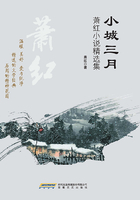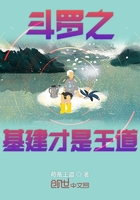Trigonometrical operations were again resumed,and two morestations on this new side of the river helped to form a fresh ********.This operation was effected without difficulty,but the astronomers had to be very careful,for the region was infested by poisonous snakes.These were mambas,about ten or twelve feet long,and whose bite was mortal.
Four days after crossing the Nosoub rapid,21st June,the operators found themselves in the midst of a well-wooded country;but the copses,formed of moderate-sized trees,did not impede the work of triangulation.On the horizon were distinct risings several miles apart,which greatly facilitated the erection of signal pylons and lamps.This district,which consisted of an extensive area perceptibly lower than the ground-level in the vicinity,was moist and fertile.William Emery found thousands of Hottentot fig-trees,whose acid fruit is so much esteemed by the boschjesmen.
Across the great plains lying between the belts of trees were wafted sweet perfumes formed by numberless bulbous roots resembling the colchicum plant.A yellow fruit about three inches long grew from these roots,whence came their sweet scent;this is the kucumakranti of South Africa,of which the native children were immoderately fond.In this region,too,abounded fields of colocynth and endless tracts of that mint whose transplantation into England was so successful.
Fertile as it was,and lending itself in every way to agriculture,this extratropical region seemed but little frequented by wandering tribes.There were no traces whatever of natives—not a kraal,not even a camp-fire;yet water was abundant,and formed a number of streams,pools,and lakelets,besides two or three rivers,whose rapid flow fed the tributaries of the Orange.
That day the savants decided to halt and wait for the caravan.The time fixed by the hunter was nearly come,and,if he had not miscalculated,he ought to arrive that very day,after having crossed at the ford lower down the Nosoub.
The day passed,however,and no boschjesman appeared;had the expedition encountered some obstacle which prevented it from rejoining its leaders?
Sir John Murray thought the Nosoub might not be fordable while the rivers were still so high,and that the hunter might have been compelled to go farther south to find a ford.This,indeed,was quite plausible.The rains had been very heavy during the last season,and the rivers must have been greatly swollen.
The astronomers waited.But when 22nd June passed without any signs of Mokoum’s men,Colonel Everest began to show signs of uneasiness.He could not continue on his march northward,while the stores were not available,and this delay,if it continued,might jeopardise the success of the operations.
Matthew Strux here pointed out that his advice had been to accompany the caravan after geometrically connecting the last station on this side of the river with the other two on the other side;that if his advice had been followed,the expedition might not have found itself in its present state of uncertainty;that it the fate of the triangulation was jeopardised by this delay,the responsibility would rest with those who thought……etc.However,under any circumstances,the Russians……etc.
It may well be believed that Colonel Everest protested against these insinuations of his colleague,reminding them that the decision had been arrived at by general consent.But Sir John Murray interfered and begged that this discussion,completely idle at it was,should be ended at once—what had been done was done,and all the recriminations in the world would change nothing.
It was settled at last that if the caravan had not arrived by the next day,William Emery and Michel Zorn,who had volunteered for this duty,should go in search of it towards the southwest under the guidance of the vorloper.During their absence Colonel Everest and his companions would stay at the camp and wait for their return before deciding what next to do.
This agreed upon,the two rivals kept as far apart as possible for the rest of the day.Sir John Murray passed his time in beating the neighbouring covers,but there was no ground game to be found.Nor were the birds particularly useful from a culinary point of view;but the naturalist and the sportsman are often united in the same person,and the former was the more fortunate of the two.He shot a very fine heathcock,about thirteen inches long,with dark grey plumage on the back,red beak and legs,wings and wing—covers shaded in brown—a remarkable specimen of the Tetraonidae family,of which the partridge is typical.The other bird shot by Sir John belonged to the hawk tribe;it was a species of falcon peculiar to South Africa,with a red neck,a white tail,and is remarkable for its beauty of shape.The vorloper skinned these two birds very cleverly,so that their plumage was uninjured.
The earlier part of 23rd June had come and gone.No signs of the caravan had yet been seen,and the two young men were about to start,when they heard barking,and this stopped them.Soon afterwards the hunter Mokoum galloped up on his zebra from behind a copse.
The bushman had left the caravan behind and hastened up to the Europeans.
‘Welcome,brave hunter,’Sir John Murray exclaimed joyfully;‘we were really beginning to despair about you.I assure you I should never have consoled myself if I hadn’t seen you again.It seems to me there’s no finding game when you aren’t with me.Come and let’s drink to your happy return in a glass of my Scottish whisky.’
Mokoum did not reply to Sir John’s friendly welcome.He looked at the Europeans and counted them.Anxiety was plainly written on his face.
Colonel Everest noticed this at once.Going up to the hunter as he dismounted,he asked,‘Whom are you looking for,Mokoum?’
‘Mr.Palander,’replied the bushman.
‘Didn’t he go with the caravan?—Isn’t he with you?’the Colonel enquired.
‘He isn’t there now,’Mokoum declared.‘I was in hopes I should find him at your encampment.He’s lost.’
At these words Matthew Strux hurried up.
‘Nicolas Palander lost!’he cried—‘a savant under your charge,an astronomer for whom you are responsible,and whom you haven’t brought back with you!Are you aware,bushman,that you are responsible for him?-and that it isn’t enough to come here and say Nicolas Palander is lost?’
This diatribe of the Russian astronomer annoyed the hunter so much that,as he was not hunting,he saw no reason to keep patient.
‘Listen to me,Mr.Astrologer of all the Russias,’he replied angrily;‘I think you had better measure your words before you speak.Do you suppose I’d undertaken to take care of your companion,who is quite incapable of taking care of himself?You blame me for him,and you’re wrong;do you understand!Twenty times I’ve surprised him dreaming over his figures,wandering away from the caravan.Twenty times I’ve warned him and brought him back.But the day before yesterday,just before dark,he disappeared,and I haven’t been able to find him.You will be more clever if you can;and as you know how to handle a telescope so well,put your eye to one end of yours and see if you can find your companion.’
The bushman would no doubt have gone on in this strain,to the great disgust of Matthew Strux,who stood there with his mouth open,unable to get in a word,if Sir John Murray had not pacified the angry hunter.Fortunately for the savant,the dispute between himself and the bushman stopped,but Matthew Strux,by an unwarrantable insinuation,fell foul of Colonel Everest,who was not expecting anything of the sort.
‘At all events,’the astronomer from Poulkowa said drily,‘I have no intention of leaving my unfortunate companion behind in this desert.I’m going to do all I can to find him.If Sir John Murray or Mr.William Emery had been lost like this,I fancy Colonel Everest would not have hesitated to suspend all scientific work to assist his countrymen.And I don’t see why less should be done for a Russian than for an English savant.’
Colonel Everest,thus directly attacked,could not preserve his usual calm.
‘Mr.Matthew Strux,’said he,folding his arms and looking his adversary in the face,‘have you made up your mind to insult me intentionally?What do you take us Englishmen for?Have we ever given you any right to doubt our humanity?What could make you suppose we should not go to the rescue of that clumsy calculator—’
‘Sir!’
‘Yes!Clumsy!’Colonel Everest repeated,stressing both syllables;‘and in reply to what you said so unjustifiably just now,I add that,if our operations should terminate unfortunately in consequence of this,the responsibility will rest on the Russians,and not on the English.’
‘Colonel,’cried Matthew Strux,whose eyes seemed coming out of his head,‘your words—’
‘My words have been well weighed,Sir;and having said so much,it is agreed that from this moment until we have recovered your calculator,all further operations remain suspended.Are you ready to set out?’
‘I was ready before you said a word,’Strux replied sourly.
The two adversaries went each to his waggon,for the caravan had now come into camp.
Sir John Murray,who accompanied Colonel Everest,could not help saying:‘It’s very lucky our awkward friend did not lose the duplicate register as well as himself.’
‘I was just thinking so too,’returned the Colonel quietly.
The two friends then questioned the hunter Mokoum.He told them how Nicolas Palander had disappeared two days ago;that the last time he saw him he was on the flank of the caravan,about twelve miles from the camp;that the moment he,Mokoum,missed him,he had set out in search of him,which had delayed his arrival;and not finding him,he wanted to see if the‘calculator’had not by some accident found his ways back to his colleagues to the north of the Nosoub.Now,since nothing had been seen of him there,he proposed to search towards the northeast,in the wooded part of the country,adding,if they wanted to find Mr.Nicolas Palander alive,there was not an hour to lose.
And indeed it was necessary to hurry:for two days the Russian savant had been wandering about in a region much frequented by wild beasts.He was not the man to get himself out of a difficulty,having lived,only in a world of figures and not in the world of fact.Where anyone else would have found food of some description,the poor man would infallibly die of hunger,so it was important to lose no time in rescuing him.
Guided by the hunter,Colonel Everest,Matthew Strux,Sir John Murray,and the young astronomers left the encampment.They were all well mounted,even Strux,who clung to his steed most grotesquely,and secretly cursed the unfortunate Palander for bringing him into such a disagreeable situation.His companions were too well bred to appear to notice the amusing attitude of the Poulkowa astronomer on his horse,which,to add to his misery,was rather lively,and very light in the mouth.
Before they left the camp Mokoum had asked the vorloper to lend him his dog,a very intelligent animal;the bushman had a great opinion of its sagacity,The dog having first smelt at a hat belonging to Nicolas Palander,set off towards the north-east,while its master spurred it on by a peculiar whistle.The little troop followed close upon the animal,and soon disappeared into the copse.
All that day Colonel Everest and his companions followed the hound’s lead.That sagacious beast knew exactly what it was expected to do;but it could not find the lost astronomer’s trail.Sniffing at the ground,it went ahead,but soon returned,having found no certain trace of him.
The members of the commission neglected nothing by which they could announce their presence in that desert region—shots were repeatedly fired and they shouted,hoping to make Nicolas Palander hear them,however absorbed he might be in his calculations.A circuit of five miles had now been made round the camp,when night came and stopped all further attempts.Next morning at daybreak they would begin again.
That night the Europeans sheltered under a clump of trees,before a fire which the bushman kept up carefully all night.Occasionally they could hear the wild beasts howling near them,and their presence was not calculated to reassure them as to the fate of Nicolas Palander.How could they hope to save the wretched man,worn out as he must be by fatigue,famished with hunger,exposed to the cold air of the night,and a prey to hyaenas,which abound in that part of Africa?This was the one preoccupation of them all.
The unfortunate man’s colleagues passed the long hours of the night discussing,forming projects,seeking means of finding him.On this occasion the English displayed a devotion which,if it did not,ought to have touched even Matthew Strux.They were determined to find the Russian savant,dead or alive,even if the trigonometrical operations had to be adjourned indefinitely.
At last,after a night in which the hours seemed ages,day appeared;the horses were quickly saddled,and the search began again over a larger radius.The hound was set loose,and the little troop followed behind it.
As they advanced towards the northeast,Colonel Everest and his companions traversed a very wet region,water-courses,of no great consequence,it is true,becoming numerous.They easily forded them,keeping,however,a good look-out for crocodiles,of which Sir John Murray now saw specimens for the first time.They were quite large,some measuring twenty-five to thirty feet long,extremely voracious and difficult to escape among the lakes and rivers.The bushman was unwilling to lose time in shooting these reptiles;he preferred keeping out of their way,and advised Sir John to do the same.When one of these monsters appeared,the horses easily galloped out of its reach.In the larger ponds dozens of them appeared,their heads out of the water and devouring their prey like dogs.
By this time the men had advanced a dozen miles to the north of their last camp;following the advice of the hunter they were about to turn towards the southwest,when the hound suddenly began to show signs of unusual excitement.It barked and wagged its tail frantically.It went a few paces off,its nose to the ground,sniffed the dried grass of a footpath,and kept going back to the same place,attracted by some special scent.
‘Colonel’cried the bushman.‘Our dog has winded something.Oh,the clever beast!He’s found some trace of the game—I beg your pardon,of the savant we’re hunting.Let him go!Let him go!’
‘Yes’agreed Sir John Murray.‘He’s on the trail!Listen to the way he’s whining!Anyone would think he was talking to himself,trying to make his mind up.I’d give fifty pounds for him,if he could lead us where Nicolas Palander has taken cover.’
Matthew Strux had not noticed the terms in which the bushman had spoken of his countryman;but the great thing was to find him.They got ready to follow the dog the moment it felt sure of its trail:this did not take long,and after a prolonged howl the animal leapt over a bush and vanished into the copse.
The horses were unable to follow it—the thicket was impenetrable;so Colonel Everest and his companions had to gallop round the cover,led by the cry of the hound.A certain degree of hope spurred them on:there was no doubt that the dog was on the scent,and if it did not lose this they ought to find the missing man.But the question then arose,would they find Nicolas Palander dead or alive?
It was about eleven in the morning.For the last twenty minutes the cry of the hound had ceased,the only guide they had.Was it too far ahead,or had it lost the scent?
The bushman and Sir John,who were leading,got uneasy.They were hesitating which way to lead the others,when they again heard the bark of the dog,about half-a-mile to the southeast but beyond the forest.
In a few strides the troop had reached a very marshy track.They could distinctly hear the cry of the hound though they could not see it,for the ground was covered with reeds ten or twelve feet high.
The riders had to dismount,and after fastening their horses to a tree,they crept through the rushes,still guided by its barking.
They soon got beyond the close belt of rushes,and came to a vast open space covered with water and aquatic plants.In a depression of the ground were the dark-coloured waters of a lagoon about half-a-mile in length and the same in breadth.The dog stopped at the muddy shore of the lagoon and began to bark furiously.
‘There he is!—there he is!’cried the hunter.
Yes,there sat Nicolas Palander on the root of a tree,motionless,at the far end of a sort of peninsula,about three hundred yards off,seeing nothing,with a pencil in his hand and a notebook on his knee,no doubt lost in some calculation.
His companions could not help crying out.At less than twenty yards the Russian savant was being watched by a number of crocodiles,their heads above the water,without his even suspecting their presence.They were crawling gently up to him,and could have carried him off in a flash.
‘We must hurry,’the hunter said quietly;‘I don’t know why the crocodiles haven’t seized him already.
‘Perhaps they’d like him when he has“hung”a little,’Sir John was alluding to a fact generally noticed by the natives,that these reptiles never eat flesh so long as it is fresh.
The bushman and Sir John asked their companions to wait for them,and went on round the lagoon so as to reach the narrow isthmus which led to Nicolas Palander.
They had not gone a couple of hundred yards before the crocodiles left the water and began crawling along the ground up to their prey.
The savant saw nothing;his eyes never left his note-book;he was still writing down figures.
‘A good aim and steady,or he’s a lost man,’the hunter whispered in Sir John’s ear.
They knelt,and,aiming at the nearest reptiles,they fired.Two of the monsters fell back into the water with their backs broken,and the remainder disappeared beneath the waters of the lagoon.
At the sound of the firing Nicolas Palander had at last raised his head.He recognised his companions,and hurried up to them,waving his notebook.
‘I’ve found it,’he exclaimed.
‘And what have you found,Mr.Palander?’asked Sir John.
‘A decimal error in the hundred,and third logarithm in James Wolston’s Tables.’
And,in fact,he had detected this error,the worthy man.He deserved the hundred pounds reward promised by James Wolston,the editor of the Tables.For the four days that he had been wandering about these solitudes,it was thus this celebrated astronomer of Helsingfors had passed his time!Andre Marie Ampere,the most absent-minded savant in the world,could not have done better.












